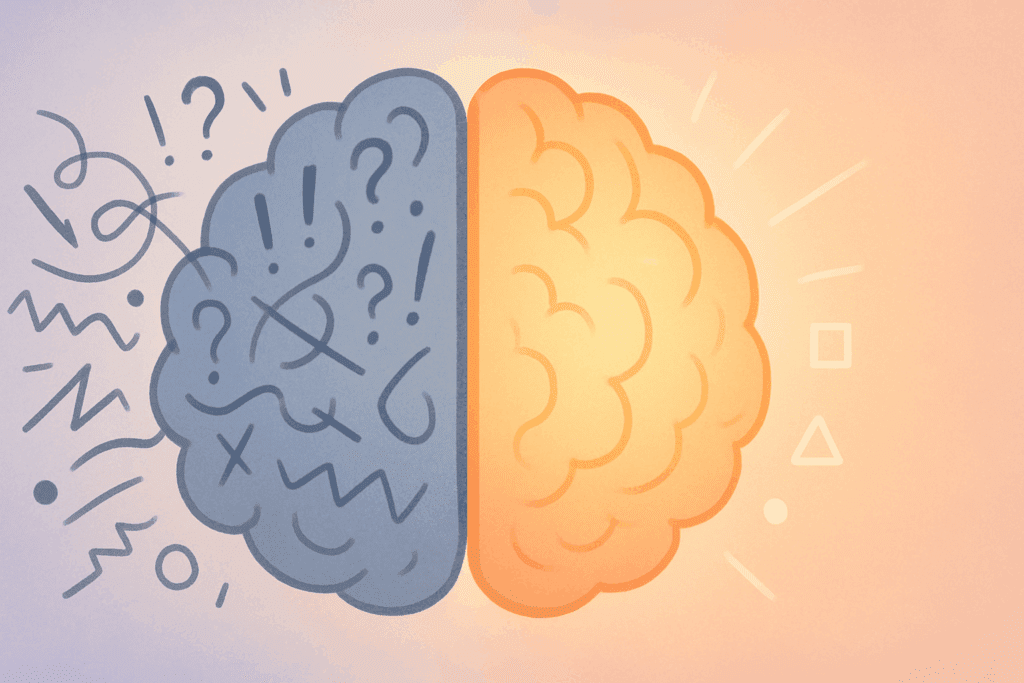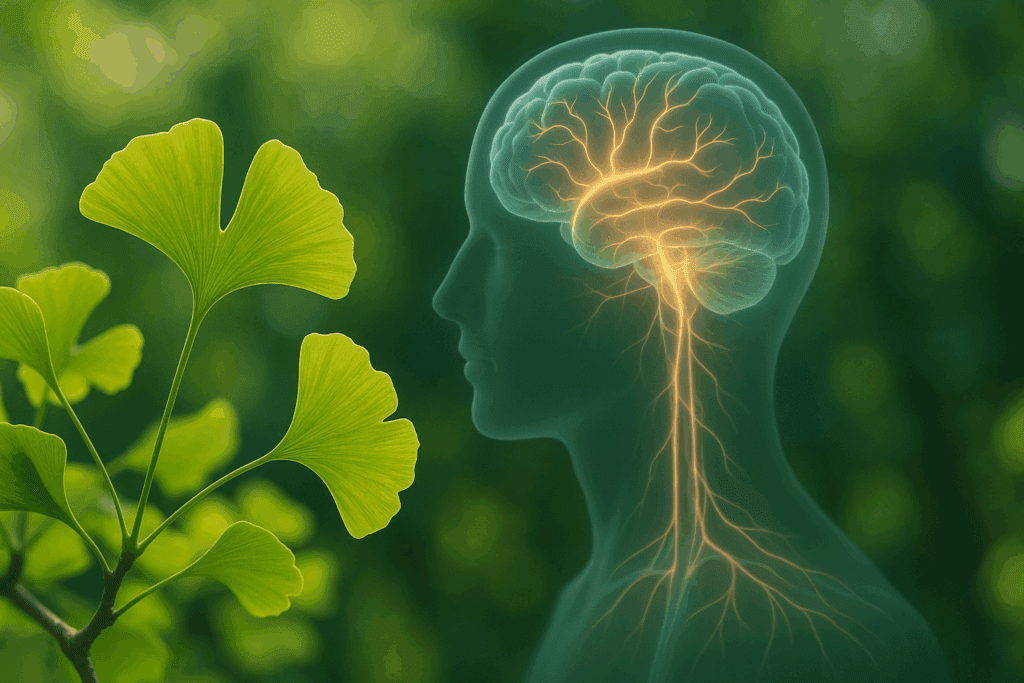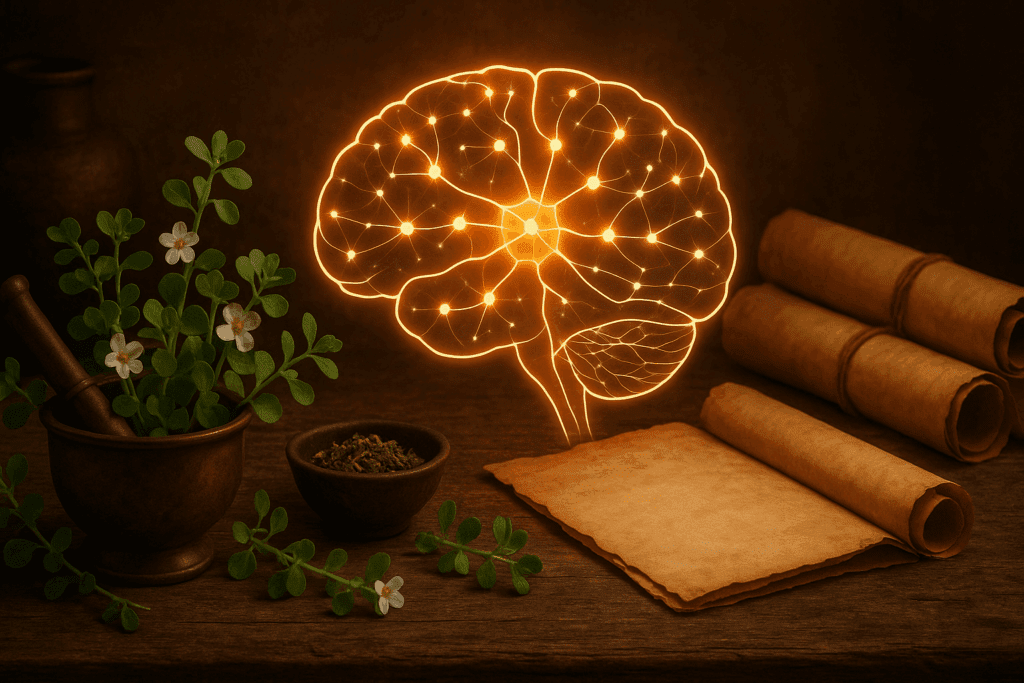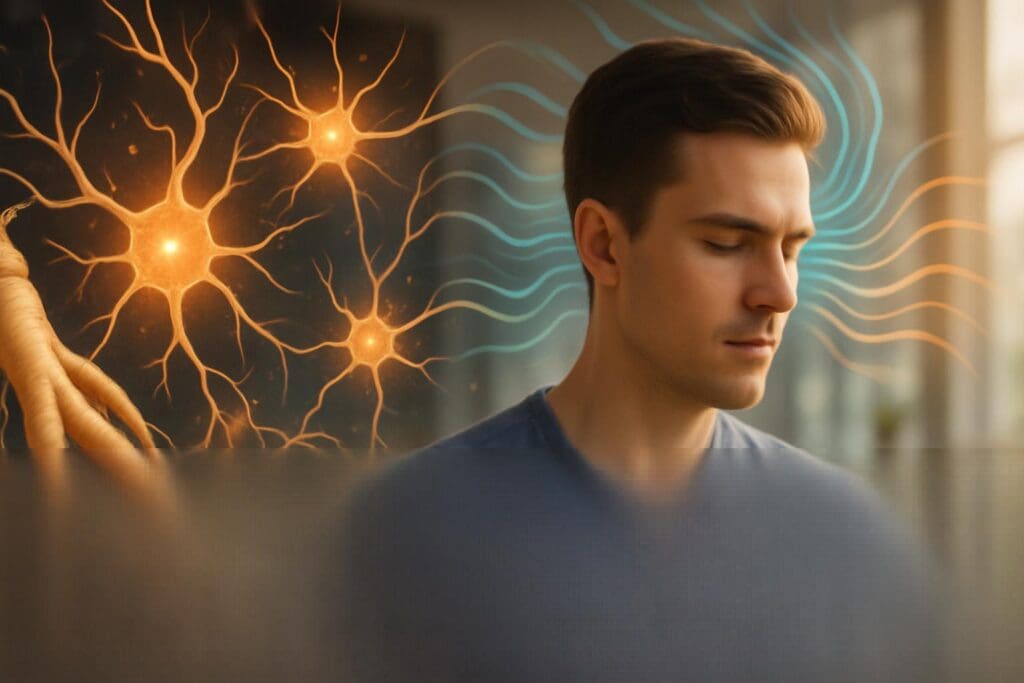Introduction: Navigating ADHD Naturally in a World of Distraction
In today’s hyperconnected, overstimulated world, attention and mental clarity often feel like rare commodities. For those with Attention Deficit Hyperactivity Disorder (ADHD), maintaining focus can be an even greater challenge, leading to frustrating episodes of forgetfulness, restlessness, and difficulty with sustained attention. The question often arises: Is there a natural way to support brain function without the side effects of prescription medications? With growing interest in integrative medicine, many are turning to herbal remedies and nootropics to manage symptoms. But which options are scientifically supported, and which are just folklore?
You may also like: Best Herb for ADHD and Focus Support: Natural Solutions for Women and Men Backed by Science
In this comprehensive exploration, we delve into the best herbs for ADHD and cognitive clarity, guided by evidence-based insights and practical applications. From ancient botanicals like ginkgo biloba to adaptogens like bacopa monnieri and rhodiola rosea, we will explore how these herbs may help those struggling with trouble concentrating and remembering. We will also discuss how certain herbs may address common concerns such as misplacing things, forgetting something that just happened, or experiencing memory loss in 40s female populations.
Whether you’re looking for holistic ways to reduce forgetfulness or want to understand why do I forget things so quickly, this article serves as a practical, science-backed guide. We’ll also weave in essential search queries like why am I so forgetful and absent minded and how to stop forgetting things, all while maintaining a professional and medically accurate perspective.

Understanding ADHD: Beyond Hyperactivity and Inattention
While commonly associated with children, ADHD affects millions of adults who often remain undiagnosed. The condition is characterized by symptoms such as inattentiveness, impulsivity, and hyperactivity. However, for many adults, the more prominent challenges lie in the cognitive domain: low average memory, difficulty prioritizing tasks, misplacing things frequently, and struggling with time management. These individuals may often find themselves saying, “I forget everything” or wondering, “Why can’t I remember things that just happened?”
Such cognitive symptoms can lead to workplace underperformance, strained relationships, and lowered self-esteem. The good news is that while prescription medications like Adderall or Ritalin offer significant relief, many individuals seek complementary options—herbs and lifestyle changes—that can support cognitive clarity and reduce the need for pharmacological intervention.
Ginkgo Biloba: The Circulatory Enhancer for Mental Clarity
Ginkgo biloba is one of the most researched herbal supplements for brain health. Derived from the leaves of the Ginkgo tree, this herb has been used for centuries in traditional Chinese medicine. What makes ginkgo compelling for those with ADHD is its ability to improve cerebral blood flow, thereby enhancing memory formation and mental processing speed. This improved blood circulation is particularly beneficial for people who find themselves struggling with why do I always forget things or why do I forget things so fast.
In controlled trials, ginkgo has shown promise in improving attention span and working memory, especially when combined with ginseng. One study found that ginkgo biloba improved executive functioning in children with ADHD when administered over several weeks. Additionally, ginkgo may help with problems remembering words, a common complaint among adults who say, “I have a terrible memory” or “why am I forgetting words?”
The herb’s antioxidant properties also help reduce oxidative stress in brain tissues, which is a key factor in neurodegenerative conditions and cognitive decline. For those experiencing early signs of memory loss in 40s female demographics, ginkgo’s neuroprotective mechanisms may offer preventive support.

Bacopa Monnieri: The Ayurvedic Nootropic for Cognitive Enhancement
Long used in Ayurvedic medicine, Bacopa monnieri is revered for its capacity to enhance learning, memory, and cognitive performance. Several studies suggest that bacopa improves synaptic communication and supports neurotransmitter function. These effects may help explain why individuals using bacopa report fewer incidents of forgetting stuff easily or asking themselves, “Why do I forget so easily?”
One clinical trial found that bacopa improved memory recall, information processing, and attention in adults over a 12-week period. These benefits are particularly relevant for those struggling with why do I forget things so easily or why do I forget so much. Additionally, bacopa is known to reduce anxiety—a common co-occurring condition in individuals with ADHD—which can further improve focus and memory retention.
Unlike stimulants that provide an immediate but short-lived boost, bacopa’s effects accumulate over time, requiring consistent use for at least several weeks to notice tangible benefits. For individuals who frequently lament, “I keep forgetting stuff,” bacopa may be a long-term ally in supporting cognitive resilience.
Rhodiola Rosea: Adaptogenic Support for Stress-Related Brain Fog
Rhodiola rosea is another powerful adaptogen known to modulate stress responses and enhance mental performance under fatigue. Its ability to improve alertness and reduce mental burnout makes it especially useful for ADHD sufferers who often experience cognitive overload. For those dealing with trouble concentrating and remembering, rhodiola’s adaptogenic properties may help recalibrate the body’s stress-response system.
Scientific studies have shown that rhodiola can reduce the time it takes to process information and improve accuracy in memory recall tasks. This is significant for anyone wondering how can I stop forgetting things or experiencing difficulties such as forgetting words or names under stress. Many individuals with ADHD describe themselves as people who forget things are called forgetful, but with the right tools—including rhodiola—this label doesn’t have to define their cognitive identity.
Rhodiola also supports mitochondrial function and reduces mental fatigue, two factors closely linked with memory and attention span. By enhancing the brain’s resilience to stress, it allows for better focus and reduces that pervasive fogginess that often leads to forgetting something just after it’s been learned.

Panax Ginseng: The Focus Booster with Energy Support
Panax ginseng is well-known for its ability to improve energy, reduce mental fatigue, and enhance overall cognitive function. It is especially relevant for ADHD due to its potential to modulate dopamine activity—a neurotransmitter often implicated in attention disorders. People with ADHD frequently report feeling mentally drained or distracted, resulting in symptoms like why do I forget so much or why do I forget things so easily.
Ginseng’s energizing effects can provide the mental stamina needed to complete tasks and retain information. A review of multiple studies concluded that Panax ginseng can improve working memory and executive function, which are key deficits in ADHD. For individuals grappling with misplacing things or experiencing forgetfulness, ginseng may offer the kind of mental clarity that is both invigorating and stabilizing.
Furthermore, ginseng’s impact on glucose metabolism and hormonal balance can support cognitive performance under physically demanding or emotionally taxing circumstances. This makes it a practical choice for adults juggling work, family, and personal responsibilities while dealing with the persistent thought: I have a terrible memory.

Gotu Kola: The Herbal Brain Tonic of the East
Gotu kola, another herb rooted in traditional Ayurvedic and Chinese medicine, is often used to support mental clarity and memory retention. Its active compounds, including triterpenoids, promote neuronal regeneration and enhance synaptic plasticity. This can be particularly helpful for those who wonder, “Why can’t I remember things that just happened?”
Studies suggest that gotu kola improves cognitive function in older adults, but its benefits extend to younger populations experiencing mental fatigue, poor focus, and forgetfulness. Those asking, “Why am I forgetting everything?” or “Why do I forget stuff so easily?” may find relief in gotu kola’s ability to soothe the nervous system while simultaneously enhancing cognition.
The herb also supports collagen synthesis and vascular health, improving oxygen and nutrient delivery to brain tissues. These mechanisms play a crucial role in maintaining cognitive performance, especially during periods of mental exertion or emotional stress. When taken consistently, gotu kola has been reported to reduce the frequency of memory lapses and improve concentration.
FAQ: Understanding Forgetfulness and Memory Challenges
1. Why do I forget things so quickly, even when I try to focus?
Forgetting things quickly can sometimes feel frustrating, especially when you believe you’re paying attention. However, short-term memory retention depends heavily on emotional salience, repetition, and overall brain health. If information isn’t encoded deeply—such as through visualization, emotional relevance, or active rehearsal—it’s likely to fade rapidly. While stress, sleep deprivation, or even dehydration can cause you to forget things so quickly, so can more subtle factors like chronic anxiety or lack of novelty in daily routines. Many people who forget things are called “absent-minded,” but the issue often lies in how the brain prioritizes information, not in your intelligence or effort.
2. Is it normal to have a low average memory, and what does that mean?
Having a “low average memory” typically refers to performance within the lower end of the normal distribution in standardized memory tests. It doesn’t necessarily indicate pathology—it could be influenced by genetics, lifestyle, or neurodiversity. For instance, individuals with ADHD may have working memory difficulties, which often lead them to forget things so easily, even with reminders in place. It becomes more concerning if memory issues interfere with daily functioning or if you’re forgetting something critical like recent events or names. In such cases, it’s wise to seek cognitive screening to rule out early signs of more serious conditions like mild cognitive impairment.
3. Why am I forgetting everything lately, even things that just happened?
Sudden forgetfulness can feel alarming, especially when you catch yourself asking, “Why can’t I remember things that just happened?” One often-overlooked factor is cognitive overload—your brain may be handling too much at once, pushing new memories aside before they’re fully encoded. Additionally, chronic sleep deprivation, hormonal fluctuations (like those seen in memory loss in 40s female populations), or emotional burnout can impair your brain’s consolidation processes. If you keep forgetting stuff despite trying to stay organized, it might be time to assess your mental health or explore brain fog as a potential symptom of an underlying issue. The sooner you understand why you forget stuff so easily, the better you can intervene.
4. Why do I always forget things in conversations or meetings?
Forgetting things during conversations is often linked to a phenomenon known as “working memory drain.” When you’re processing complex dialogue or multitasking, your brain deprioritizes details for later recall. People who forget things are called forgetful, yes, but this oversimplifies how neurological multitasking works. It’s especially common to forget things so quickly when you’re trying to mentally prepare your response instead of actively listening. Practicing mindfulness and using reflective language during conversations can significantly reduce memory lapses. Understanding how to stop forgetting things in real-time involves engaging fully, avoiding distractions, and occasionally repeating key points aloud.
5. Why am I so forgetful and absent minded all the time?
Feeling consistently absent minded can result from a combination of stress, overstimulation, or lack of structured mental rest. When the brain is overwhelmed, it may misfire when storing or retrieving information, leading you to forget things so easily and frequently. This isn’t necessarily a sign of dementia—many high-functioning adults experience it during periods of transition, hormonal change, or emotional strain. Individuals often say, “I keep forgetting stuff and misplacing things,” not realizing that their mental bandwidth is maxed out. A cognitive rest strategy, such as digital detoxing or focused breathing, can be one practical way to help you stop forgetting things throughout the day.
6. What causes problems remembering words during conversation?
Problems remembering words, known medically as anomic aphasia when persistent, can stem from fatigue, nutritional deficiencies, or temporary cognitive disconnection between language centers in the brain. It becomes more noticeable with age, during stress, or when multitasking excessively. Asking “Why am I forgetting words lately?” may point toward sleep deprivation, dehydration, or an underactive thyroid—conditions that subtly affect memory. Some people experience this symptom alongside other signs like forgetting something simple (e.g., a PIN or someone’s name), making it seem like they forget everything. Building vocabulary through reading and using memory hooks like visual imagery can retrain these retrieval pathways.
7. Is it common for people in their 40s to experience memory issues?
Yes, particularly for women experiencing hormonal transitions like perimenopause, memory loss in 40s female populations is well-documented. Estrogen influences neurotransmitters like acetylcholine, which are essential for memory and focus. It’s not unusual to forget things so quickly or to experience trouble concentrating and remembering during this life stage. While this is often temporary, it can be exacerbated by sleep disturbances, caregiving stress, or changes in diet and physical activity. Being proactive with mental stimulation and hormone-supportive nutrition can help those wondering, “Why do I forget so much during this phase of life?”
8. Why do I forget so much when I’m under pressure?
Acute stress floods the body with cortisol, which in turn impairs the hippocampus—the brain region responsible for forming new memories. That’s why in high-pressure moments, you might say, “Why do I forget so much right when it matters?” This can be especially disruptive if you already struggle with low average memory. The sensation of “I have a terrible memory” is often self-fulfilling when anxiety amplifies these forgetful episodes. The key to how to stop forgetting things under pressure is to create stress-buffering rituals, such as deep breathing or positive visualization, which help re-regulate memory function in real time.
9. Why do I keep misplacing things or forgetting small tasks?
Constantly misplacing items or skipping routine tasks often reflects inattentional blindness rather than memory loss. You’re not necessarily asking “Why can’t I remember things?” but rather, “Why didn’t I register it in the first place?” People who forget things are called scatterbrained, but this label ignores how chronic distraction affects short-term recall. The brain’s default mode network, which governs daydreaming and spontaneous thought, often overrides present-moment awareness. Setting intentional cues—such as placing keys in a dish or using auditory reminders—can shift your brain from autopilot to focused mode and help reduce forgetting something important.
10. How can I stop forgetting things and improve my memory long term?
To truly stop forgetting things and sharpen memory, you need a multilayered approach: physical, cognitive, emotional, and behavioral. Brain-friendly habits like exercise, hydration, omega-3 intake, and quality sleep form the foundation. But many overlook environmental memory aids—using a consistent place for items, verbal tagging (“I’m putting my glasses by the sink”), or digital calendar alerts. If you keep saying “I forget everything” or “Why do I always forget things?” it might be time to work with a cognitive behavioral therapist to address underlying anxiety. And remember, forgetting stuff easily doesn’t define your intellect—it’s a signal to recalibrate how you manage your mental resources.

Lemon Balm: The Calming Herb for Mental Balance
Lemon balm (Melissa officinalis) is a gentle, calming herb that has been shown to improve mood, reduce anxiety, and enhance cognitive function. Its mild sedative properties make it particularly effective for those with ADHD who struggle with racing thoughts, restlessness, or trouble sleeping. For individuals who keep asking, “Why am I so forgetful and absent minded?” the answer may lie in chronic sleep disruption and mental fatigue—areas where lemon balm can provide meaningful support.
Clinical trials have shown that lemon balm extract can improve cognitive speed and accuracy, particularly in individuals experiencing stress-related cognitive impairment. This makes it a valuable addition to any ADHD-friendly herbal regimen, especially for those dealing with problems remembering words or feeling mentally foggy.
By promoting GABA activity in the brain, lemon balm helps regulate emotional and neurological balance. This mechanism can be profoundly beneficial for people who say, “I forget everything,” or who are constantly misplacing things due to anxiety-driven distraction.
Further Reading:
Natural Treatments for ADHD: Supplements, Diet, and Alternative Therapies


